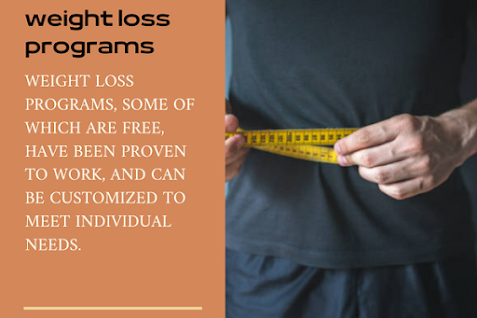weight loss programs
weight loss programs, some of which are free, have been proven to work, and can be customized to meet individual needs. They also offer guidance and support throughout the process. Most programs are based on a straightforward system of diet, exercise, behavior modification, and support
Most people who use weight loss programs expect to lose lots of weight in a very short period of time. However, the majority of people who use weight loss programs do not lose the weight they have set out to lose on their own.
Weight loss programs are typically designed to help you lose weight quickly. They do so by increasing your metabolism, which burns fat as your body processes food, and by reducing the number of calories you intake, which allows you to lose weight without worrying about counting calories.
In the past, dieters only limited themselves to what they could eat at the grocery store. Today, many dieters are turning to online weight loss programs in order to lose weight effectively, restrict snacking, and track their food and fitness intake. These programs are generally free to join, and in some cases, they offer optional membership fees that are either per month or per year. *On average, online weight loss programs such as Weight Watchers and NutriBullet promise weight loss of up to a pound a day, sometimes more and sometimes less, depending on which plan a person chooses and
Weight loss programs can seem complicated at first, but they all fall into the same basic categories: weight-based, calorie-based, and plan-based. A weight-based plan focuses on limiting the amount of calories you consume and increasing the amount of calories you burn through exercise and other activities. A calorie-based plan focuses on counting calories and limiting portion sizes to reduce the number of calories you're eating without necessarily reducing the number of calories you're burning. A plan-based plan is similar to a calorie-based plan, but it also involves an exercise component.
The simple process of counting calories is all too familiar. It forces you to focus on what you’re eating, tracking your meals in a journal, or trying to decipher the nutritional information on food labels.
and often, their success depends on their members following the advice of their coaches. But in some cases, weight loss programs are a scam, and they’re not worth the time or the money, says Daniel Rubin, author of The Diet Diary. “Dieticians are supposed to know what works and what doesn’t,” he says. “But often they end up recommending things that don’t work.”

